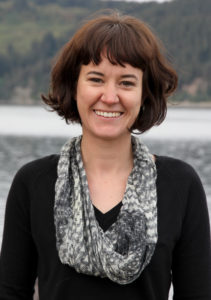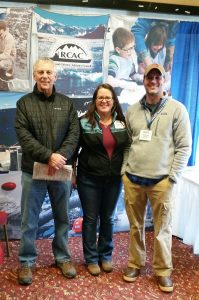By Betsi Oliver
Outreach Coordinator

What makes the difference between youth who develop careers and other roles protecting our ecosystem versus those who don’t?
When youth develop a personal connection to the outdoors, an understanding of and interest in science, and civic engagement experience, they develop into young adults who are engaged, informed, and passionate.
In previous jobs I implemented youth education programs that were supported by the Council. As a mentor for the young participants, I saw that a web of interconnected experiences provides a strong foundation for their development. For a young person, finding a next step gives meaning to the fun field trip they did in elementary or middle school, turning it into their context for participating in Science Bowl, an internship, a volunteer effort, or an academic path.


